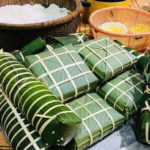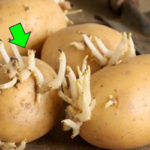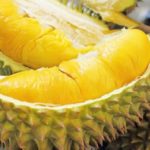Most people usually peel and enjoy bananas when they buy them, but few think about washing them before eating. Do bananas need to be washed or is it just an unnecessary step?
Do bananas need to be washed?
The bananas we buy are usually harvested when they are still green. This is a way for sellers to minimize economic losses caused by damage during transportation and distribution before reaching consumers. At the necessary stage, bananas are treated with chemicals to ripen them.
Therefore, when you buy bananas, you should wash them under clean water. This step helps remove the chemicals that speed up the ripening process, thus slowing down the ripening process and making the bananas last longer.
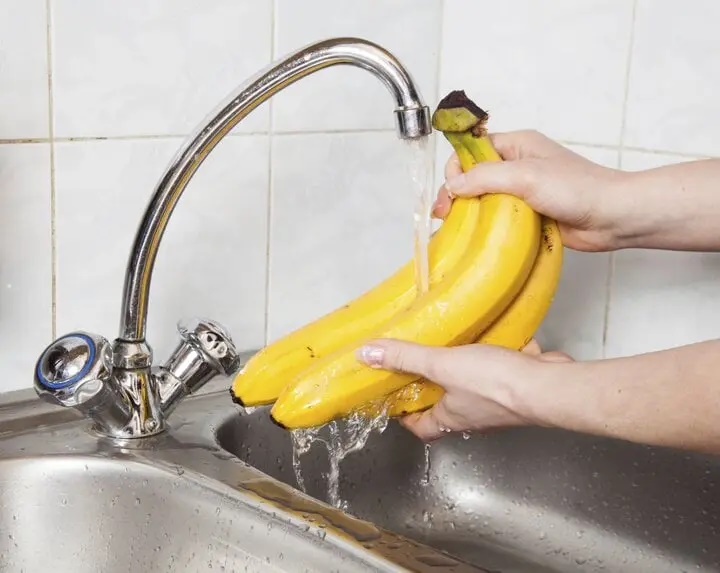
Do bananas need to be washed after buying? The answer is yes, because if you don’t grow the bananas yourself, you won’t know if they have been soaked in chemicals. (Image: Pinterest)
Sharing on Tien Phong newspaper, Mrs. Nguyen Thi Nhung, Head of the Department of Medicine, Weeds and Environment, Institute of Plant Protection (Vietnam Agricultural Sciences Institute), said that in the “super-fast” banana ripening agent, there is a synthetic chemical that, when mixed with water, reacts strongly to produce calcium carbide gas. This gas makes bananas (or other fruits like tomatoes, jackfruit, etc.) ripe after a few hours of soaking in the agent.
Calcium carbide, when in contact with the skin, can cause discomfort, itching, and if it gets into the body in large amounts, it can cause fainting and even death.
HuffPost quotes the advice of Tamika Sims, Senior Director of Food Technology Communications at the International Food Information Council: “You should wash foods with skins with clean water, even if you plan to peel them. This is the best way to handle food safely, minimize the transfer of dirt or bacteria from the skin to the flesh you plan to eat. You can see dirt on the skin, but pesticides or bacteria such as salmonella or campylobacter cannot be seen.”
Tamika Sims advises: “You should wash all fruits before eating, including organic foods and fruits that you peel”.
The issue of whether bananas bought need to be washed or not is also answered by Trevor Craig, a food safety expert at Microbac Laboratories (USA): “Banana peel, avocado peel, and fruits with thick skins are also susceptible to bacterial contamination, just like softer fruits and vegetables with thinner skins. The thick skin of the banana makes it difficult for bacteria or dirt to penetrate into the flesh, making them have a longer shelf life. However, when you cut a banana, the knife can push anything on the skin into the flesh, causing cross-contamination.
Therefore, washing bananas before eating can reduce the risk of cross-contamination. This is not a perfect process and it certainly does not make food sterile, but you can minimize risks as long as you do it safely. In addition, washing bananas can help remove dirt, insects, pesticides, or wax on the banana surface.”
Therefore, after buying bananas, you should wash them with clean water, then dry them and wrap the stem with a piece of silver food wrap. The stem of the banana releases a large amount of ethylene gas, which helps accelerate ripening. Wrapping the stem tightly prevents the release of this gas, making the bananas last longer.
Craig advises: “You don’t need to use any cleaning agents to wash bananas, just wash them with clean water is enough. However, if you really want to, you can use a diluted vinegar solution consisting of one part vinegar to four parts clean water to wash. It will help kill some bacteria, eliminate unpleasant odors, or dangerous chemicals that may be present on the food”.
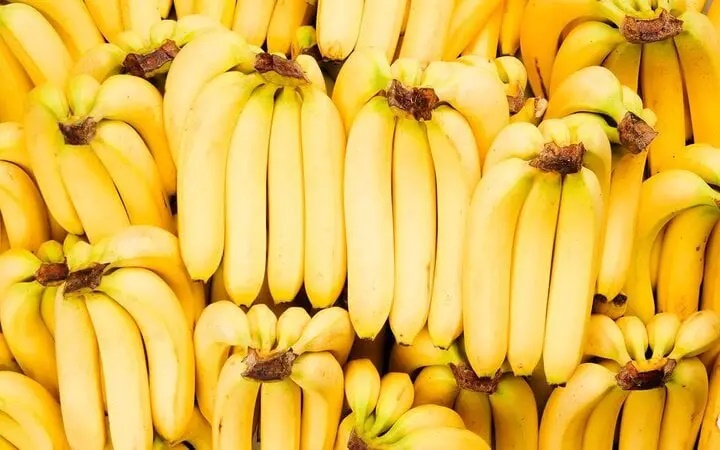
Washing bananas when buying also helps preserve them longer. (Image: Taste of Home)
The benefits of bananas for health
Bananas are an affordable fruit, but they have great benefits for health.
– Enhance vision: Bananas contain a lot of vitamin C and vitamin A, which help enhance vision. In addition, beta carotene and vitamin E in bananas have antioxidant effects and are beneficial for the eyes. Lutein in bananas is a substance that helps reduce the risk of macular degeneration.
– Anti-cancer: Delphinidin, an antioxidant compound, has anti-tumor properties. The use of Delphinidin has the effect of inhibiting the development of gastric tumors.
– Control blood pressure and cardiovascular health: Bananas are a rich source of potassium, which helps ensure smooth blood circulation throughout the body, reduce the risk of atherosclerosis, stroke, and maintain good blood pressure.
– Energy boost: Bananas have the ability to provide instant energy, and athletes can eat bananas during breaks between exercises to quickly recover their physical strength.
– Improve mood: Science has proven that eating bananas regularly and consistently has the effect of reducing symptoms of stress and depression. The vitamin B9 in bananas brings this great effect. You should eat bananas regularly to improve mood, have better and deeper sleep.
According to VTC News
8 Common Mistakes People Make with Cutting Boards
Are you using your cutting board correctly? Many Vietnamese households rely on cutting boards in their kitchen, but not everyone knows how to use them properly, especially when it comes to wooden cutting boards. Check out these 8 mistakes to avoid when using a cutting board to ensure both hygiene and safety for everyone in your family.
Is Refrigerated Leftovers Linked to an Increased Risk of Cancer?
Dr. Lam Van Man, Head of Research, Development and Technology Transfer Department of the Institute of Safety Food, has warned of the risk of food poisoning when reheating leftovers from the refrigerator. But what should we be aware of when it comes to the possibility of these leftovers causing cancer? Here, we explore what the experts have to say on the matter and offer some tips for safe eating.
Preserving Leftover Food from the Tet Holiday
With the beginning of the Lunar New Year, many households are stocking up on food to celebrate the festive occasion. While keeping food in the refrigerator is convenient, it can also be harmful to users if not done correctly. We have compiled a few tips to help ensure food remains fresh and safe to consume during Tet.


























